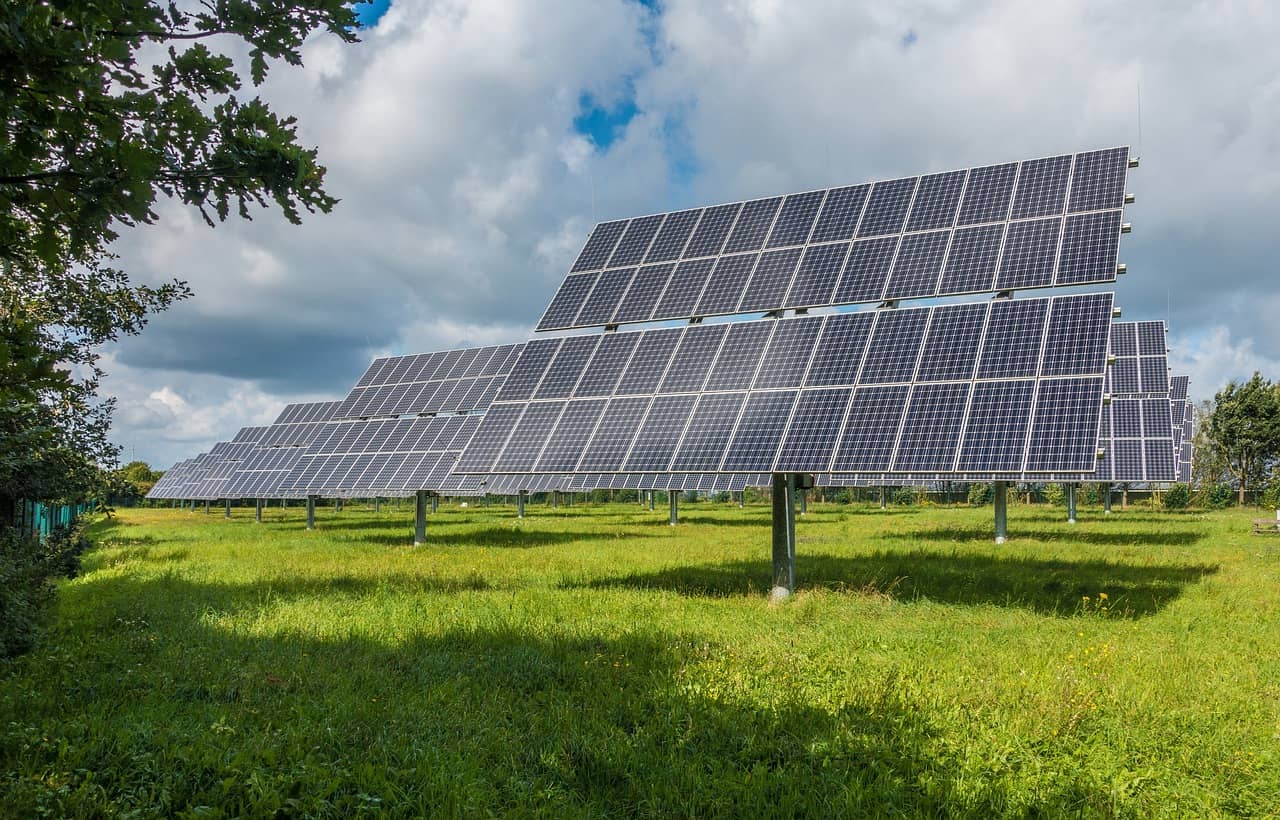Power. Since it was invented by Michael Faraday, who lived from 1791-1867, electricity has, like fuel, become a vital commodity that we quite simply can't do without. Whilst the demand has remained the same, throughout the ages the production of power has changed.
We have moved from coal burning power stations to nuclear, and now with the drive to renewable energy, or green energy, such as solar power to cut carbon emissions.
We are seeing numerous green electricity generation wind and solar farms springing up everywhere in countries where people and governments are trying to put a stop to, and in some instances, reverse climate change. This is where vocations such as solar energy technicians come into play.
Let's discuss what the best paying jobs and careers in power generation are.
Best Paying Jobs In Power Generation & Salaries 2026 - Top 10

1. Energy Storage Engineer
An energy storage engineer is a professional who specializes in the design, development, and implementation of energy storage systems and is without a shadow of a doubt one of the best-paying jobs in power generation.
They play a crucial role in supporting both stand-alone and hybrid storage-renewable energy projects and can be responsible for a range of tasks including:
Providing expertise and support for energy storage projects, including system design and modeling, developing custom software and hardware modules for energy storage systems, and addressing issues related to health and safety, design reviews, and quality control.
Becoming one involves a combination of education, skills development, and practical experience in the field of energy storage technologies, but generally you will require:
- A Bachelor's or advanced degree such as a Master's or even a Ph.D.
- Gaining proficiency in relevant software tools used in energy storage engineering, such as simulation software, modeling tools, and CAD programs.
- Obtaining certifications relevant to energy storage systems, such as those related to battery technologies or renewable energy.
- Or considering joining professional organizations related to energy storage, such as the Electrochemical Society (ECS), IEEE Power and Energy Society, or the American Energy Storage Association.
The average annual salary for an Energy Storage Engineer in the US is $151,632, making it the highest paying job in power generation.
2. Electrical Engineer
An Electrical Engineer is a professional who specializes in designing, developing, testing, and maintaining systems, devices, and technologies that involve the electrical power generation, transmission, distribution, and utilization of electrical energy and is also one of the best-paying jobs in energy.
They work on a wide range of projects, from small-scale electronic devices to large-scale power systems and everything in between, and their work is essential in various industries, including electronics, telecommunications, power generation, automation, renewable energy, and more.
Becoming one involves a combination of education, skills development, and practical experience, but generally you will require:
-
A bachelor's degree in electrical engineering or a related field.
-
Participating in engineering projects, research, or student organizations related to electrical engineering.
-
Specializing in a particular area of electrical engineering, such as power systems, electronics, telecommunications, or control systems.
-
Obtaining a professional engineer (PE) license.
-
Or developing proficiency in relevant software and tools commonly used in the field, such as AutoCAD, MATLAB, and various programming languages.
The average annual salary for an Electrical Engineer in the US is $95,349.
3. Nuclear Engineer
A nuclear engineer is a specialized type of engineer who focuses on the design, development, and operation of systems and processes that utilize nuclear energy and radiation and is a critical job in the energy sector. Hence it is high on the list of the best-paying jobs in power generation.
They design and develop nuclear power and work in various fields related to nuclear technology, including nuclear power generation, nuclear medicine, nuclear research and nuclear safety, and play a vital role in various industries, from energy production to healthcare and scientific research.
Becoming one requires a combination of education, practical experience, and potentially licensure, depending on your location and specific career goals, but generally you will require:
- A bachelor's degree in nuclear engineering, nuclear science, or a closely related field/
- Doing internships or cooperative education (co-op) programs with nuclear power plants, research laboratories, or companies involved in nuclear engineering.
- Pursuing a master's or doctoral degree in nuclear engineering or a related field.
- Obtaining a professional engineer (PE) license to practice independently or hold certain positions.
- Or staying up-to-date with advancements in nuclear engineering by attending workshops, seminars, and continuing education courses.
The average annual salary for a Nuclear Engineer in the US is $95,270.
4. Mechanical Engineer
A mechanical engineer is a professional who specializes in designing, analyzing, and optimizing mechanical systems and devices. They apply principles of physics, mathematics, and materials science to create and improve a wide range of products and systems that involve mechanical components. Mechanical engineers work in various industries, including automotive, aerospace, energy, manufacturing, robotics, and more.
Becoming one typically involves a combination of education, practical experience, and professional development but generally you require:
- A Bachelor of Science (B.S.) or Bachelor of Engineering (B.Eng.) in Mechanical Engineering.
- Participation in engineering projects, design competitions, or research projects offered by your university.
- A Professional Engineer (PE) license to work on certain projects or offer engineering services directly to the public.
- Or a master's degree (M.S. or M.Eng.) or a Ph.D. in mechanical engineering or a related field.
The average annual salary for a Mechanical Engineer in the US is $90,645.
5. Environmental Engineer
An environmental engineer is a professional who applies principles of engineering, science, and mathematics to address environmental issues and challenges.
Environmental engineers work to develop solutions that protect and improve the quality of the environment, as well as the health and safety of individuals and communities. This is similar to a renewable energy consultant and is one of the most important renewable energy jobs.
They play a vital role in in the renewable energy sector by addressing a wide range of environmental concerns, including pollution control, water and wastewater treatment, resource management, and sustainable development.
Becoming one typically involves a combination of education, practical experience, and professional development but generally you will require:
- A bachelor's degree in environmental engineering or a closely related field, such as civil engineering with a focus on environmental engineering.
- Internships or cooperative education (co-op) opportunities during your undergraduate studies.
- Pursuing a Professional Engineer (PE) license, which can be beneficial for certain job opportunities or if you plan to offer engineering services to the public.
- A master's degree (M.S. or M.Eng.) or a Ph.D. in environmental engineering or a related field to specialize further or engage in research and development roles.
- Or joining a professional organizations such as the American Society of Civil Engineers (ASCE) or the American Academy of Environmental Engineers and Scientists (AAEES) to network with other professionals and access valuable resources.
The average annual salary for an Environmental Engineer in the US is $85,285.
6. Power Distribution Engineer
A Power Distribution Engineer is a specialized electrical engineer who focuses on the design, operation, and maintenance of electrical power distribution systems in the power grid.
These systems are responsible for delivering electricity from power generation sources (such as power plants or renewable energy facilities) to end-users, including homes, businesses, and industrial facilities.
Power distribution engineers play a crucial role in ensuring the safe, reliable, and efficient delivery of electricity to consumers.
To become one, you will need to follow a series of steps that typically include education, gaining practical experience, and professional development but generally you will require:
- A bachelor's degree in electrical engineering or a related field with a focus on power systems or power distribution.
- Internships or cooperative education (co-op) opportunities with electrical utilities, engineering consulting firms, or energy companies.
- Obtaining a Professional Engineer (PE) license, pursuing a master's degree (M.S. or M.Eng.) in electrical engineering or a related field.
- Or specializing in areas such as substation design, distribution system planning, renewable energy integration, or smart grid technologies.
The average annual salary for a Power Distribution Engineer in the US is $85,058.
7. Energy Auditor
An energy auditor is a professional who evaluates the energy usage and efficiency of buildings, facilities, or industrial processes.
Their primary goal is to identify opportunities for energy conservation and recommend measures to reduce energy consumption, improve sustainability, and lower energy costs.
Energy auditors play a crucial role in helping organizations and individuals make informed decisions about energy efficiency improvements.
Becoming one typically involves a combination of education, practical experience, and professional development but generally you will require:
- A bachelor's degree in a relevant field such as engineering, environmental science, or a related discipline.
- Seeking out internships, entry-level positions, or apprenticeships in energy auditing or related fields to gain hands-on experience and develop relevant skills.
- Obtaining certifications in energy auditing or energy management. Organizations like the Association of Energy Engineers (AEE) offer certifications such as the Certified Energy Manager (CEM) and Certified Energy Auditor (CEA).
- Or staying informed about energy efficiency technologies, regulations, and industry trends through ongoing professional development and networking with industry peers.
The average annual salary for an Energy Auditor in the US is $52,473.
8. Electrical Power-Line Installer and Repairer
An Electrical Power-Line Installer and Repairer, commonly referred to as a lineman, is a skilled tradesperson responsible for installing, maintaining, and repairing electrical power lines and associated equipment.
These professionals play a crucial role in ensuring the safe and reliable delivery of electricity to homes, businesses, and industries.
Linemen work on both overhead and underground power distribution and transmission systems, often in challenging weather conditions and high-risk environments.
Becoming one commonly typically involves a combination of education, apprenticeship, and on-the-job training, but generally you will require:
- Obtaining a high school diploma or equivalent qualification, focusing on subjects such as mathematics, physics, and electrical technology.
- Enroll in apprenticeship programs offered by electrical utility companies, electrical contractors, or labor unions.
- Or obtain a certification from organizations such as the National Joint Apprenticeship and Training Committee (NJATC) or state-specific organizations.
The average annual salary for a Electrical Power-Line Installer and Repairer in the US is $64,693.
9. Power Plant Operator
A Power Plant Operator who works in power generation plants, is a skilled professional responsible for operating and controlling the machinery and systems in a power plant to generate electricity.
Power plants are essential facilities that convert various sources of energy into electrical power, which is then distributed to homes, businesses, and industries.
Power plant operators play a critical role in ensuring the safe, efficient, and reliable production of electricity.
Becoming one typically involves a combination of education, on-the-job training, and possibly obtaining the necessary licenses or certifications, depending on your location and the type of power plant you want to work in, but generally you will need:
- Understanding the different types of power plants, including coal, natural gas, nuclear, hydroelectric, and renewable energy plants (solar, wind, geothermal).
- Gaining knowledge therein, while not always required, completing a vocational or technical training program related to power plant operations, electrical systems, or industrial maintenance.
- Or looking for entry-level positions in the energy or utility industry.
- Common entry-level positions include assistant operators, maintenance technicians, or equipment operators.
The average annual salary for a Power Plant Operator in the US is $69,986.
10. Wind Turbine Technician
A Wind Turbine Technician, also known as a Wind Turbine Service Technician or Wind Tech, is a skilled professional in the renewable energy field who works on wind energy sites and is responsible for the maintenance, repair, and operation of wind turbines used in wind energy generation.
Wind turbines are tall structures equipped with large blades that harness wind energy and convert it into electrical power. Wind turbine technicians play a crucial role in ensuring the efficient and reliable operation of wind energy systems.
Becoming one typically involves a combination of education, on-the-job training, and possibly obtaining certifications, but generally you will need:
- A high school diploma or equivalent qualification.
- Focus on mathematics, physics, and mechanical or electrical systems,
- Familiarizing yourself with the wind energy industry, including different types of wind turbines, wind farm operations, and the potential environmental impact, while not always required,
- Enrolling in a vocational or technical training program related to wind energy technology or renewable energy systems,
- Or obtaining industry-recognized certifications to demonstrate your competency.
- Certifications from organizations like the North American Wind Energy Association (NAWEA) or the Global Wind Organization (GWO) can enhance your job prospects.
The average annual salary for a Wind Turbine Technician in the US is $50,422.
Conclusion - What's the best paying job in power generation?

As the demand for new power sources continues to grow year-on-year, so too will the opportunities to build a long and lucrative career.
Renewable energy is firmly in the limelight right now, and as reliance on fossil fuels continues to diminish as we head toward carbon neutrality, so the expansion of careers in this industry will continue to open more doors for those seeking to break into the power generation industry.
Overall, a career in power generation can provide you with meaningful work, job stability, opportunities for advancement, and a chance to contribute to addressing some of the world's most pressing energy and environmental challenges.
In terms of the best paying jobs in power generation, it's clear that an energy storage engineer gets paid the most.
However, whether you're drawn to technical roles, engineering, environmental stewardship, or management, there are rewarding career paths to explore within the power generation industry. Just make sure that you have the necessary skills, degrees, or experience to get your foot in the door ahead of others.
There are certainly low hanging roles in the power generation industry that do not require a degree.
However, if you are looking to climb the corporate ladder in the industry, it is strongly suggested that you obtain either a BBA or an MBA from an internationally accredited university such as Nexford.
FAQs
Is power generation a good career path?
Power generation can be a rewarding career path with several advantages, but whether it's a good fit for you depends on your interests, skills, and career goals.
Overall you get, good job stability as it is a crucial industry that provides a constant supply of electricity to homes, businesses, and industries,
The power generation sector offers a wide range of career opportunities, from power plant operators and engineers to renewable energy specialists and grid operators.
As the world transitions to cleaner and more sustainable energy sources, careers in renewable energy and green technologies within power generation are becoming increasingly important.
Power generation professionals often receive competitive salaries and benefits, especially as they gain experience and expertise in their respective roles.
And, with continued education, training, and experience, you can advance to higher positions within the industry, such as supervisory or management roles.
What is the future of power generation?
The future of power generation is expected to undergo significant transformations driven by several key trends and developments.
These changes are influenced by environmental concerns, technological advancements, evolving energy policies, and the growing demand for cleaner, more sustainable energy sources. On the whole the future is bright for several reasons.
Renewable energy sources such as solar, wind, and hydropower are expected to play a more prominent role in power generation. The development of advanced energy storage technologies, such as batteries, is critical for enhancing the reliability of renewable energy sources.
Distributed energy resources, including rooftop solar panels, microgrids, and local energy storage, are decentralizing power generation.
Hydrogen is gaining attention as a potential clean energy carrier. And, advanced nuclear reactor designs, including small modular reactors (SMRs) and next-generation reactors, are being developed to address safety concerns and provide more efficient and sustainable nuclear power options.
What is the fastest growing job in the power generation field?
As the power generation field undergoes significant transformations toward cleaner and more sustainable energy sources, several job roles are experiencing rapid growth.
The specific fastest-growing job in this field can vary depending on factors such as geographic location, government policies, technological advancements, and market demand.
However, some of the fastest-growing job roles in the power generation field include: Solar Photovoltaic (PV) Installers, Wind Turbine Technicians, Energy Storage System Technicians, Energy Efficiency Specialists, Grid Operators and Control Room Operators, Data Analysts and Engineers, Hydrogen Production Specialists, and Nuclear Engineers and Technicians.
Does the power generation industry pay well?
The pay in the power generation industry can vary widely depending on factors such as job role, location, level of expertise, education, and the specific segment of the industry in which you work.
Overall, the power generation industry has the potential to offer competitive salaries, especially in roles that require specialized skills or technical expertise.
Here are some considerations regarding compensation in the power generation field: Positions that require specialized skills, such as electrical or mechanical engineering, wind turbine maintenance, or control room operations, often offer higher salaries to attract and retain qualified professionals.
Individuals with advanced degrees, certifications, and years of experience typically command higher salaries. Compensation can also depend on the type of energy source you work with.
For example, positions related to renewable energy sources like solar and wind energy may offer competitive salaries due to the growth of these industries and the demand for skilled technicians.
And, the segment of the power generation industry can also impact compensation, for example, working for a public utility company, an independent power producer, or a private energy company may offer different salary structures and benefits.
Do I need a degree to work in a power generation job?
Whether or not you need a degree to work in a power generation job depends on the specific role you're interested in and the level of responsibility and expertise required for that role.
The power generation industry offers a wide range of job opportunities, from entry-level positions that may not require a degree to highly technical and engineering roles that typically do.
Here are some guidelines to help you understand the role of education in the power generation field: Some power generation positions, such as equipment operators, maintenance technicians, and laborers, may not require a college degree.
Many power generation jobs, especially those in skilled trades like electrical or mechanical maintenance, can be pursued through apprenticeship programs.
Certain roles, like wind turbine technicians or electrical technicians, may require an associate's degree in a relevant field or completion of a technical training program.
Higher-level roles, including electrical engineers, mechanical engineers, civil engineers, and environmental engineers, typically require a bachelor's degree in engineering or a related field.
And, advanced degrees, such as a master's or Ph.D., may be required for research positions, academic roles, or leadership positions within the power generation field.
How can I progress in my power generation career?
Progressing in your power generation career involves a combination of acquiring additional skills and knowledge, gaining experience, and taking on more responsibilities.
The specific steps you should take will depend on your current role, career goals, and the opportunities available within the power generation field. Here are some general strategies to help you advance in your power generation career:
Stay updated with industry trends, emerging technologies, and best practices through ongoing education and training.
Specializing in a specific niche, such as renewable energy, grid management, or environmental compliance, can open up unique career opportunities.
Find a mentor or senior colleague who can provide guidance, advice, and insights into career advancement within the industry. Depending on your role, consider obtaining relevant industry certifications or licenses.
And, stay up-to-date with local, state, and federal regulations that impact the power generation industry.
Subscribe to our newsletter
Don't miss out on our latest updates.
Unlock Your Potential: Explore Our Programs
Invest in yourself and your future. Discover our range of degrees, courses, and certificates to achieve your goal







